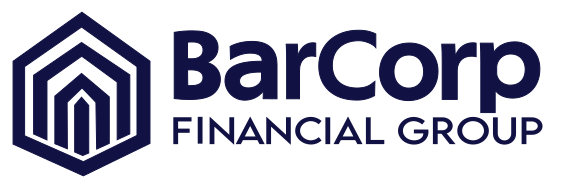Barcorp Express Program
¿Qué es el Barcorp Express Program?
El Barcorp Express Program es un préstamo diseñado para inversionistas extranjeros que desean financiar propiedades en EE. UU. basándose en los ingresos por alquiler, en lugar de su documentación de ingresos personales. Este programa elimina la necesidad de historial crediticio en EE. UU. o verificación tradicional de ingresos, centrándose únicamente en el potencial de ingresos de la propiedad

Beneficios del Barcorp Express Program
El Barcorp Express Program se enfoca en los ingresos de la propiedad, facilitando la aprobación sin necesidad de historial crediticio en EE. UU. Este enfoque permite a los inversionistas extranjeros expandir su portafolio inmobiliario en EE. UU. de manera eficiente, utilizando únicamente el potencial de ingresos de las propiedades.
Por qué Barcorp es la Mejor Opción?
BarCorp Financial Group se especializa en préstamos DSCR para extranjeros, ofreciendo términos competitivos, procesos ágiles y un conocimiento profundo en financiamiento inmobiliario. Con el Barcorp Express Program, garantizamos un servicio personalizado y oportunidades de inversión optimizadas en el mercado estadounidense.
Documentos Requeridos para la Aprobación del Barcorp Express Program
- Información de la Propiedad:
- Dirección y descripción completa de la propiedad.
- Contratos de arrendamiento vigentes (si la propiedad ya está alquilada).
- Proyección del ingreso potencial por alquiler.
- Documentación Financiera:
- Estados de cuenta bancarios recientes para verificar activos y liquidez.
- Documentación sobre deudas o pasivos existentes.
- Prueba de fondos para el pago inicial y costos de cierre.
- Documentos de Identificación:
- Pasaporte válido.
- Visa u otros documentos migratorios relevantes.
- Prueba de domicilio actual en el extranjero y en EE. UU. (si aplica).
Benefits and Advantages
Flexible Income Verification
Use bank statements, rental income, and more
Higher Loan Limits
Access to larger loan amounts
Lenient Credit Requirements
Easier qualification for borrowers with lower credit scores
Alternative Documentation
Simplified paperwork and approval process
Customized Loan Terms
Tailored solutions to fit individual needsI
Investor-Friendly
Ideal for real estate investors
Self-Employed Friendly
Great for self-employed and gig economy workers
Quick Approval Process
Faster turnaround times for loan approval
Diverse Property Types
Financing available for various property types
Personalized Service
Dedicated loan officers to guide you through
Questions And Answers.
1. Who Can Benefit from a Non-QM Loan?
Non-QM loans are beneficial for individuals who do not meet the strict qualification criteria of traditional mortgages. This includes self-employed individuals, those with irregular incomes, investors, and those with higher debt-to-income ratios. They are also a good option for those who have had credit issues in the past but have since recovered financially.
2. What Documentation is Required for a Non-QM Loan?
The documentation required for a Non-QM loan can vary based on the lender and the borrower’s specific situation. Typically, borrowers may need to provide alternative documentation such as bank statements, profit and loss statements (for self-employed), and asset depletion loans which use liquid assets to qualify instead of income.
3. Are Non-QM Loans More Expensive?
Non-QM loans can be more expensive than traditional mortgages. They often come with higher interest rates and fees due to the perceived higher risk associated with lending to borrowers who do not fit conventional lending criteria.
4. Can I Get a Non-QM Loan with a Low Credit Score?
Yes, it is possible to get a Non-QM loan with a low credit score. Non-QM lenders are more flexible with credit scores and may prioritize other factors like income stability and the amount of down payment.
5. How Long Does it Take to Get Approved for a Non-QM Loan?
The approval process for a Non-QM loan can vary but is generally longer than for a conventional loan. It typically takes a few weeks to a couple of months depending on the complexity of the borrower’s financial situation and the speed of the documentation process.
6. What Property Types Can Be Financed with a Non-QM Loan?
Non-QM loans can finance a variety of property types including residential properties (single-family homes, condos, and multi-family units), commercial properties, and investment properties. They are quite flexible regarding the type of properties they can cover.
7. Is a Down Payment Required for a Non-QM Loan?
Yes, a down payment is typically required for a Non-QM loan. The exact amount can vary widely depending on the lender and the borrower’s financial profile but is generally higher than that required for traditional loans.
8. Can Investors Use Non-QM Loans for Rental Properties?
Yes, investors can use Non-QM loans for rental properties. These loans are particularly useful for investors who may not show enough taxable income on their tax returns to qualify for traditional loans but can demonstrate the ability to repay through other financial means.
9. Why Choose BarCorp for a Non-QM Loan?
BarCorp Financial Group stands out for its expertise in handling Non-QM loans, providing personalized service and flexible terms tailored to meet the unique needs of each borrower. Choosing BarCorp means partnering with a team that understands the complexities of non-traditional lending and works diligently to secure the best possible terms for its clients. With a strong focus on customer satisfaction and a deep understanding of the real estate market, BarCorp ensures a smooth and efficient loan process for all types of borrowers.
10. What Are the Long-Term Benefits of Choosing a Non-QM Loan?
Choosing a Non-QM loan can offer long-term benefits, particularly for those who might not otherwise qualify for traditional financing options. These benefits include the ability to purchase or invest in property despite unconventional income streams or credit histories. Furthermore, a Non-QM loan can serve as a stepping stone, allowing borrowers to build equity and improve their financial standing, which could eventually help them qualify for more traditional, lower-cost loan options in the future. For many, it’s an opportunity to invest in property and secure financial growth, even when traditional pathways are closed.
Have any Questions…
We’re here to help!
